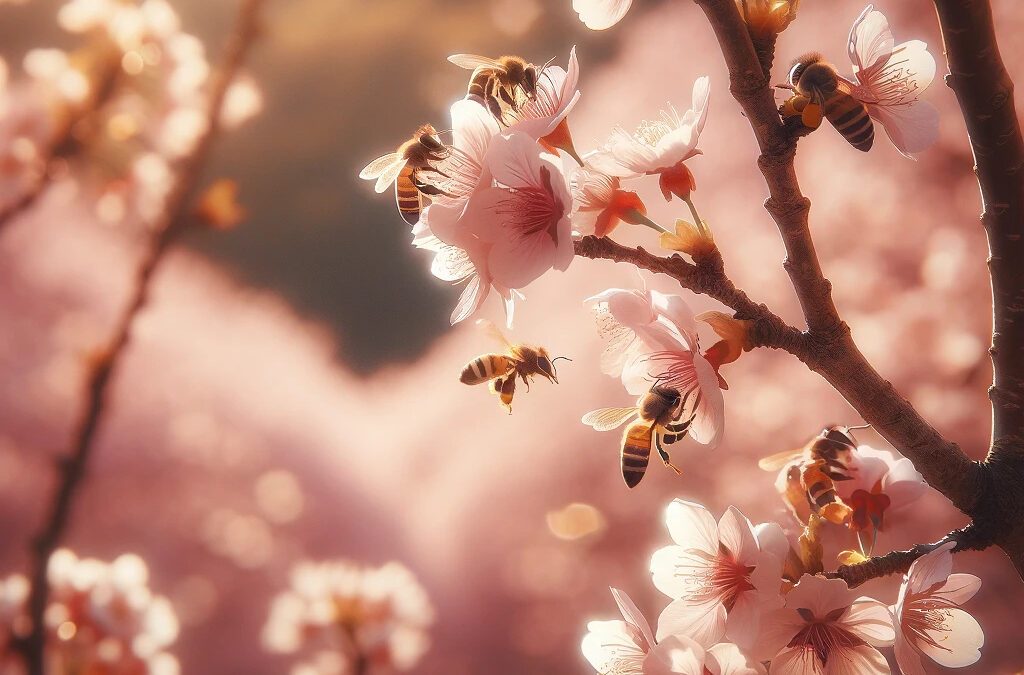Example of cherry tree pollination at Dwelley Family Farms with year-round hives from the first to the last blossom.
Pollination plays a crucial role in the agricultural richness of Brentwood, California. This area, renowned for its lush orchards and fertile fields, relies heavily on the tireless work of bees and other pollinators. In Brentwood, a diverse range of crops, including cherries, peaches, and corn, depend on the process of pollination to thrive.
What makes Brentwood unique is its microclimate, which creates an ideal environment for a variety of flowering plants. This diversity not only supports a wide range of agricultural products but also provides a perfect habitat for pollinators. Bees, particularly honeybees, are the most prominent pollinators in the region. They are vital for the cross-pollination that is essential for the growth of many of the crops.
Local farmers and beekeepers work hand in hand to ensure a healthy bee population. Beekeeping practices in Brentwood are geared towards sustainable methods, prioritizing the health of bees. This symbiotic relationship benefits both the agricultural yield and the local bee populations.
However, the pollination ecosystem in Brentwood faces challenges such as habitat loss, pesticide use, and climate change. These factors pose a threat to the health of pollinators. Addressing these issues is crucial for the sustainability of both agriculture and the natural environment in Brentwood.
The community’s awareness and efforts towards protecting pollinators are commendable. Initiatives like planting bee-friendly flowers, reducing pesticide usage, and supporting local beekeeping are steps in the right direction. These actions not only aid in sustaining the local pollinator populations but also ensure the continued agricultural prosperity of Brentwood.
In conclusion, the story of pollination in Brentwood, California, is a testament to the interconnectedness of nature and agriculture. The health and well-being of pollinators like bees are directly linked to the success of the crops they pollinate. By understanding and supporting this natural process, the community contributes significantly to the sustainability and richness of its agricultural heritage.
Need beehives for cherry pollination, plum pollination, apple pollination, pear pollination…

